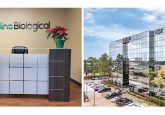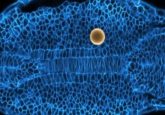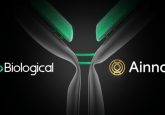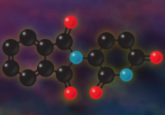Editor’s highlights: ELRIG’s Research and Innovation Conference 2023
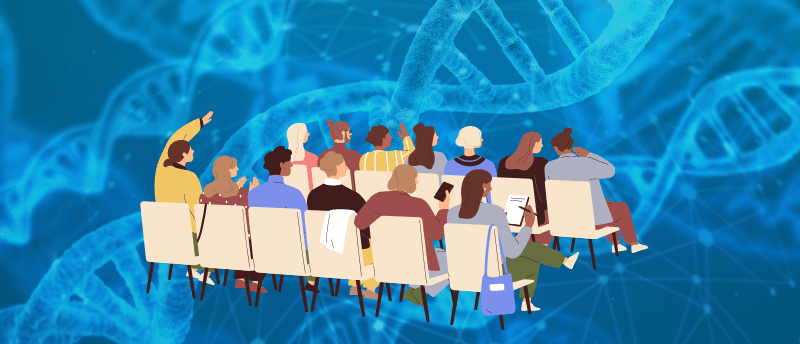
The European Laboratory Research & Innovation Group (ELRIG) UK hosted its Research and Innovation conference in Cambridgeshire (UK) on the 29–30 of March 2023, shining light on emerging biological discoveries and cutting-edge technologies in the drug discovery space. Experts were brought together from industry and academia to share their research in synthetic biology, ultra-rare disease drug discovery and personalized therapies, addressing age-related diseases and AI-driven drug discovery.
Here, Aisha Al-Janabi shares some of her session highlights from the conference.
Modifying cell behavior with synthetic biology
The conference kicked off with keynote speaker Ron Weiss, a Professor of Biological Engineering at MIT (MA, USA), discussing the therapeutic potential of synthetic biology and programmable organoids. Weiss explained how synthetic gene circuits guide organoid growth and development, which can be tailored to different applications including implants for regenerative medicine or for drug discovery as a proxy for cell cultures or in vivo assays.
Also in the synthetic biology track, Tara Deans (University of Utah; UT, USA) discussed making platelets in vitro, which would be beneficial as platelets have a shelf life of 5 days from the date of collection and must be stored at room temperature. After her presentation, I caught up with Tara to find out more about the principles of synthetic biology and her research, which you’ll be able to read about in an upcoming interview feature!
Stanley Qi (Stanford University; CA, USA) gave a presentation on how synthetic biology can be used to engineer solutions to problems with cell therapy, giving new tools for epigenome and transcriptome engineering. Qi explained 3D genome engineering with CRISPR-GO, which alters cellular function by changing the spatial information of DNA.
Tackling age-related disease
The second day of the conference started with a keynote talk from Ken Raj, Principal Investigator of the Cambridge Institute of Science at Altos Labs (NC, USA), on resilience in age-related disease and the epigenetic clock. Speakers in this track highlighted the difference between life span and health span, and the importance of being able to lengthen our independent lives, which would benefit the quality of life for individuals and reduce strain on medical services.
Graeme Wilkinson (Medicines Discovery Catapult; Cheshire, UK) discussed the UK SPINE project, which ran from 2018 – 2022, a project studying age-related multimorbidity. This project aimed to advance the understanding of the mechanisms behind aging by identifying biomarkers of multimorbidity.
CoSolve sustainability live pitching
Alongside all the wonderful talks, ELRIG also hosted two live pitching sessions – think Dragons’ Den or Shark Tank – for sustainable solutions for organic solvent recycling and for filter tip reuse or recycling. For each challenge, three finalists presented their quick-fire 5-minute pitch followed by 5 minutes of questions from a panel of five judges. It was great to see issues, and solutions, around sustainability being incorporated into the conference, especially focusing on challenges that are unique to drug discovery and manufacturing.
Some of the pitches included creating a thermally insulating and sound-absorbing material from pipette filter tips, a filter tip removal box and non-thermal separation of organic solvents with membrane technology. Whilst at the conference, I spoke with Vesna Najdanovic, a Senior Lecturer in Chemical Engineering at Aston University (Birmingham, UK), about green solvents and her proposition of using ethyl lactate as an alternative solvent to acetonitrile for HPLC reactions.
The winners are yet to be announced, but I’m itching to find out the results!
Early Career Professional Impact Award
Yichao Yu (University College London, UK) won ELRIG’s Research and Innovation Early Career Professional Impact Award 2023 for his approach to selectively controlling signaling events in astrocytes, without genetic modification. This technique, called magnetomechanical stimulation (MMS), exploits the mechanosensitivity of astrocytes and can be used to activate cell pathways and determine the mechanosensory threshold of astrocytes.
Look out for our upcoming interviews with the chair of ELRIG UK, Melanie Leveridge (GSK; Brentford, UK), and Conference Director Saleha Patel (AstraZeneca; Cambridge, UK) as well as conference speakers!
Keep up-to-date with the ELRIG conference calendar here.
